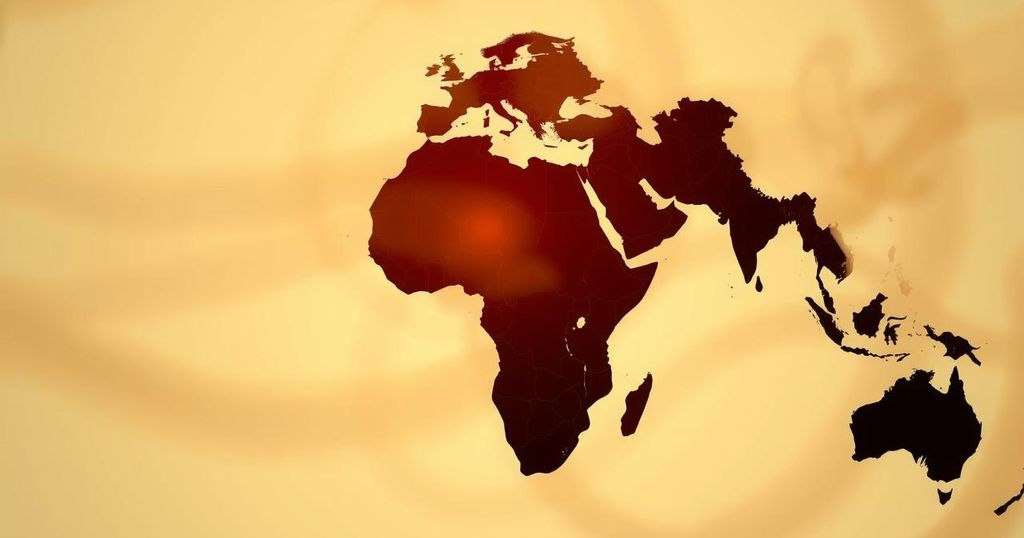Rwanda’s Territorial Ambitions: Echoes of Putin’s Ukraine Strategy
Rwanda’s M23 rebel group has seized Goma, drawing parallels to Putin’s actions in Ukraine. Both nations employ proxies under the guise of protection while pursuing territorial ambition. Rwanda’s military involvement compounds Congo’s longstanding turmoil, amidst rising concerns over a declining international order that appears to allow for such aggressive maneuvers. To counter this trend, international diplomacy and stronger responses from donor nations are essential.
The recent seizure of Goma by the M23 rebel group typifies a startling parallel with Russia’s actions in Ukraine. On January 27, M23 took control of Goma, resulting in the deaths of several UN peacekeepers and causing widespread displacements among local citizens. The obscurity of M23 to those outside Central Africa calls for a comparative analysis with the situation in Donbas, Ukraine, during 2014.
In Ukraine, President Vladimir Putin annexed territories while utilizing local separatists as a facade for his military interventions. This fabricated narrative was purportedly to protect ethnic Russians facing persecution. However, the involvement of Russian armed forces on the ground was evident, despite Kremlin denials which echoed hollow in the face of definitive reports.
In a similar vein, Rwandan President Paul Kagame has implemented tactics mirroring Putin’s as M23 claims to defend Congolese Tutsis from exaggerated threats, thereby masking its role as a proxy for Rwanda. Reports confirm that Rwandan troops have crossed into Congo to support these rebels while Rwanda aims to expand its territorial influence, all under an expansive veil of denial.
Such actions exacerbate the existing turmoil within Congo, where armed conflicts have displaced eight million individuals, including 400,000 in the last month, with rampant violence and exploitation of natural resources. In stark contrast to Rwanda’s minimal gold mining, it has morphed into a significant gold exporter coinciding with these conflicts.
Although Rwanda’s actions do not clearly constitute formal annexation, they craft an informal puppet state resembling the Donbas scenario. The context in Congo differs from that in Ukraine since the country is rife with instability and several armed factions. Rwanda is not the only aggressor, yet it stands as the most formidable force in the region.
Rwanda’s aggressive maneuvers signify deeper concerns regarding the deteriorating international order, where the violation of sovereignty seems more permissible. This development invokes fears over the re-emergence of imperialism, propelled by examples like Putin’s Russia and other world leaders testifying to an alarming precedent of conquest.
Rwanda’s previous incursions into Congo date back to 2012, when M23 first captured Goma but faced swift international backlash. At that time, external pressures, including a stronger UN presence, curtailed their advances. However, the current geopolitical landscape offers less scrutiny and more support for Rwanda from nations like China and Turkey, while the United States under President Biden had previously succeeded in tempering Kagame’s ambitions with warnings.
The West now faces a precarious dilemma; despite Rwanda’s favorable global standing due to its internal governance and contributions to peacekeeping, it is imperative that international donors reevaluate their positions. Rwanda’s heavy reliance on foreign aid warrants a stronger stance against its territorial ambitions; thus, diplomacy from the U.S. and other African nations is essential to mitigate further conflict.
Should Kagame be permitted to persist in his imperialistic endeavors similar to Putin’s actions, the repercussions for global stability could be severely detrimental. Allowing such blatant transgressions against a nation’s sovereignty to go unchecked would set a perilous example that invites further violations worldwide, ultimately giving credence to the belief that might justifies right.
The ongoing situation in Congo represents a crucial geopolitical conflict with deep historical roots. Rwanda has a notorious history of involvement in Congolese affairs, which dates back several decades. The Rwandan government has justified its interventions in the region under the guise of protecting certain ethnic groups. However, the consequential destabilization and exploitation of Congo’s resources have often drawn international attention, especially as the impact on local populations grows increasingly dire.
In summation, the actions of Rwanda in Congo echo patterns of territorial aggression witnessed globally, particularly in the current climate of geopolitical tensions. Such conduct undermines international law and poses significant risks to regional and global security. It is crucial that international entities respond firmly, reaffirming the principle of respecting territorial sovereignty, to prevent the disturbing trend of imperialistic behavior from solidifying in modern foreign relations.
Original Source: www.hindustantimes.com




Post Comment